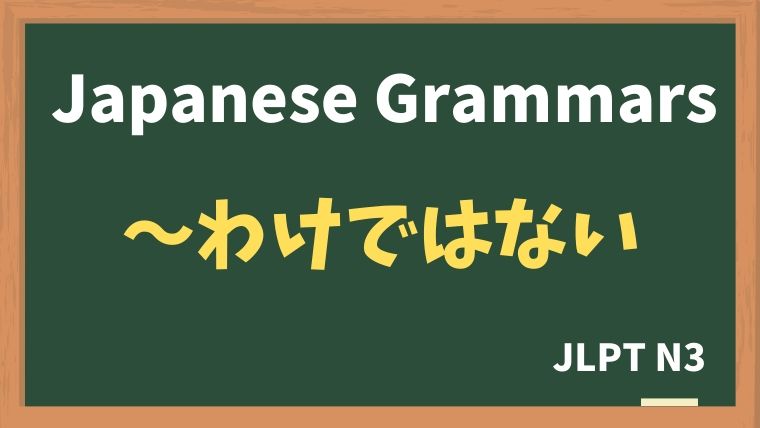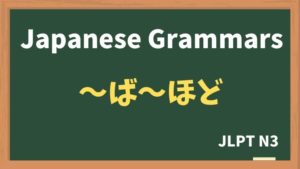
Explanation:〜わけではない
fa-check-circleMeaning
① "it does not necessarily mean that 〜"
This is used to express that a certain expectation does not always hold. This is often used with "かならずしも"
② "not always"
This negates what one would generally conclude from previous statements or situations.
fa-check-circleForm
V(plain form)+ わけではない
イA(plain form)+ わけではない
ナA(plain form) + わけではない
N(plain form) + わけではない
| affirmative | negative | |
| V | 行くわけではない | 行かないわけではない |
| イA | 安いわけではない | 安くないわけではない |
| ナA | 嫌いなわけではない | 嫌いじゃないわけではない |
| N | 風邪なわけではない | 風邪じゃないわけではない |
fa-check-circleJLPT Level
N3
Sample sentenes
JLPT N1に合格したら、必ずしも日本語がペラペラになるというわけではない。
Passing the JLPT N1 does not guarantee that you will become fluent in Japanese.
必ずしもブランド品がいいというわけではない。
Brand-name products are not always the best.
日本人がみんな寿司が好きというわけではありません。
Not all Japanese people love sushi.
必ずしもたくさん寝たら、授業中に眠くならないというわけではありません。
Getting plenty of sleep does not guarantee that you won't fall asleep in class.
必ずしもいい大学を卒業したら、いい会社に就職できるわけではない。
Graduating from a prestigious university does not guarantee that you will get a good job.
たくさんお金があっても、幸せになれるわけではない。
Having a lot of money does not guarantee happiness.
お酒をあまり飲めませんが、飲めないわけではありません。
I can't drink much alcohol, but it's not that I can't drink it at all.
あまり日本語を話しませんが、日本語ができないわけではありません。
I don't speak much Japanese, but it's not that I can't speak it at all.
Vocabulary
| Japanese |
English | |
| - | ブランド | luxury (brand) item |
| 就職する | しゅうしょくする | to get a full time job |






